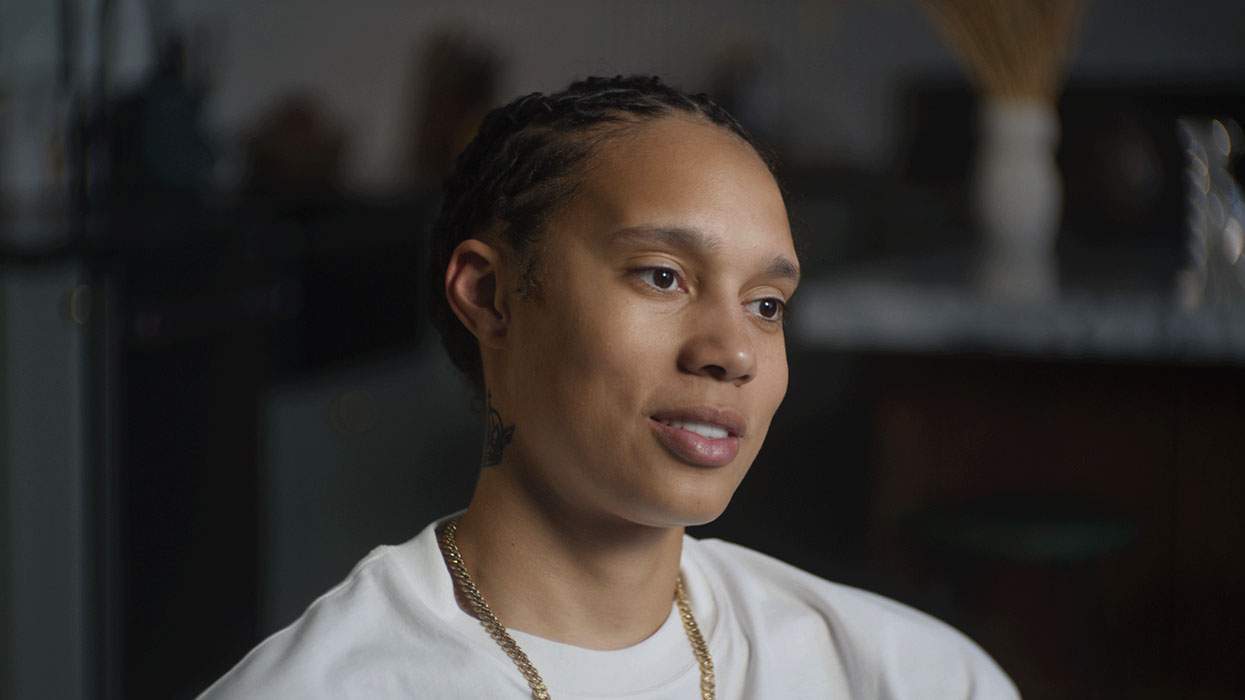In recent years, there's been a minor reckoning over the cruel and sexist treatment of women pop stars who've been unfairly mocked and cast aside by the media, and thus the public. Think of the "Free Britney" movement or Janet Jackson's excoriation over "nipplegate," both results of shameful chapters in pop culture, although sadly nothing new.
Nothing Compares, a new documentary directed by Kathryn Ferguson which screened at the 48th Seattle International Film Festival, makes a compelling case for why it's high time singer Sinead O'Connor's similarly tattered reputation got a second look. Her crime, it lays out, was simply being an outspoken artist of deep conviction, ahead of her time -- and for that she paid dearly. That O'Connor wouldn't and couldn't conform put her on an inevitable crash course with both the entertainment industry and a culture that simply wasn't ready for the truths she would unleash.
Right from the outset of the film, O'Connor makes it clear via voiceover that she never set out to be a pop star. "There was no therapy when I was growing up, so that's the reason I got into music. It was therapy. This is why it was such a shock to become a pop star. It was not what I wanted. I just wanted to scream," she says. That quote is emblematic of all that follows.
The film is devoid of standard talking head segments, and relies instead on voiceover from O'Connor and those who knew her or were there at the time playing over archival and dreamlike reenactment montage footage. The result is a hypnotic sense of melancholy.
Nothing Compares is hyper-focused on the handful of years that O'Connor became the indie-pop scene's controversial it-girl, only to be violently cast aside for rattling the mainstream with her rendition of Bob Marley's "War" and takedown of the Catholic Church on Saturday Night Live years before its child abuse scandals and coverups became widely known.
O'Connor rapidly rose to fame with hits like "Mandinka" and "Nothing Compares 2 U", the latter of which topped charts and earned the singer accolades including a Grammy. Then the world turned on her and the backlash was legendarily cruel. Everyone from the likes of Madonna, Phil Hartman, and even Joe Pesci got in on the mockery (the latter issuing threats of violence). Meanwhile, the mainstream audience just laughed and nodded along.
It would be a crushing experience for any 26-year-old, but it was one the singer had no choice but to weather -- and, reflecting on it in the film, she expresses little regret. "I didn't mean to be strong. I wasn't thinking to myself that I must be strong. I didn't know I was strong. I did suffer through a lot because everyone thought it was OK to kick the shit out of me. I regret that I was so sad because of it. I regret that I spent so many years very lonely and isolated really".
The narrative at the time was that she should shut up and sing, or that she had staged her protest (tearing up a photo of the pope on SNL) just for the attention or to further her reputation for being controversial. This film, however, provides the context that was sorely missing in the sensationalist and shallow media coverage of the day and the backlash that accompanied it. As the film reveals, it wasn't just a moment contrived for shock value, but one of deep conviction rooted in the musician's childhood. It began with the childhood trauma that marked and shaped her as an artist. Her brushes with institutional abuse were born out of patriarchy and the influence of the Catholic Church, as well as the corrupt and cruel capitalist system underpinning the music and entertainment industries. Through that lens, her protest is profound -- and prescient.
Unfortunately, the film ends abruptly without delving into the subsequent years for the artist, including her complicated coming out that included the disclosure, retraction, and clarification of her non-homonormative sexuality. Also missing from the piece is O'Connor's spiritual journey and conversion to Islam. It's somewhat disappointing -- if understandable -- that the decision was made to eschew those details from a film with a singular focus on a particular part in the artist's life. But with such a compelling subject at its heart, it's a noteworthy omission in an otherwise deeply intimate portrait.
What remains clear, however, is that O'Connor is a powerful artist without comparison.
This review is part of our coverage of the 48th Seattle International Film Festival.















Charlie Kirk DID say stoning gay people was the 'perfect law' — and these other heinous quotes
These are some of his worst comments about LGBTQ+ people made by Charlie Kirk.